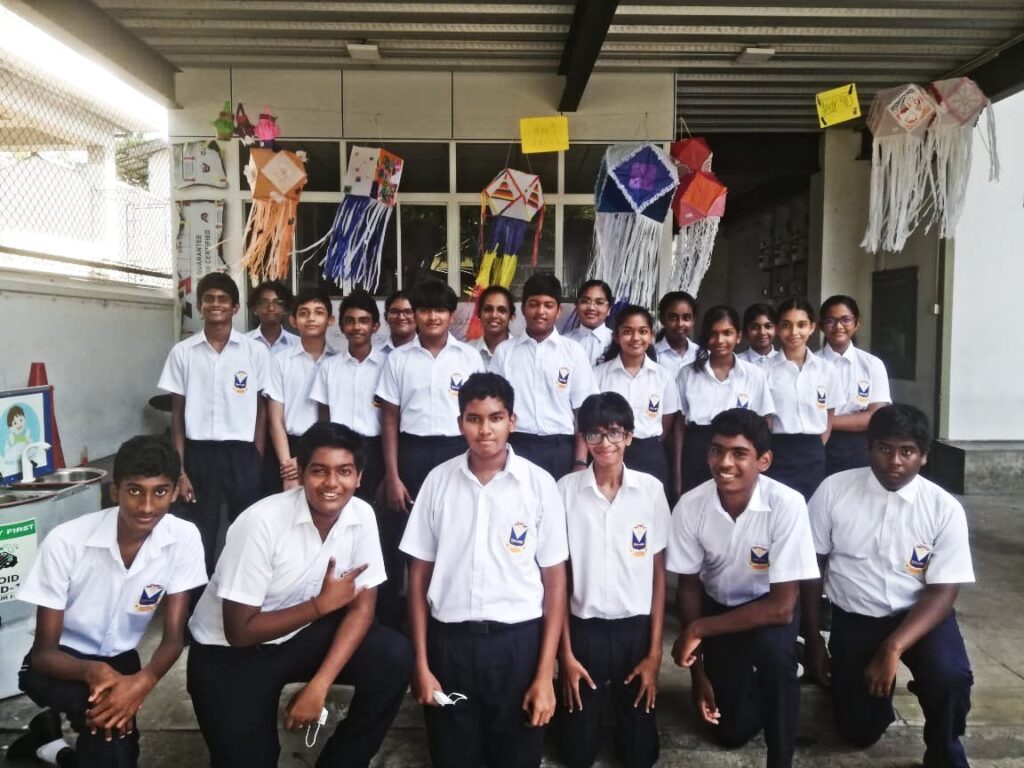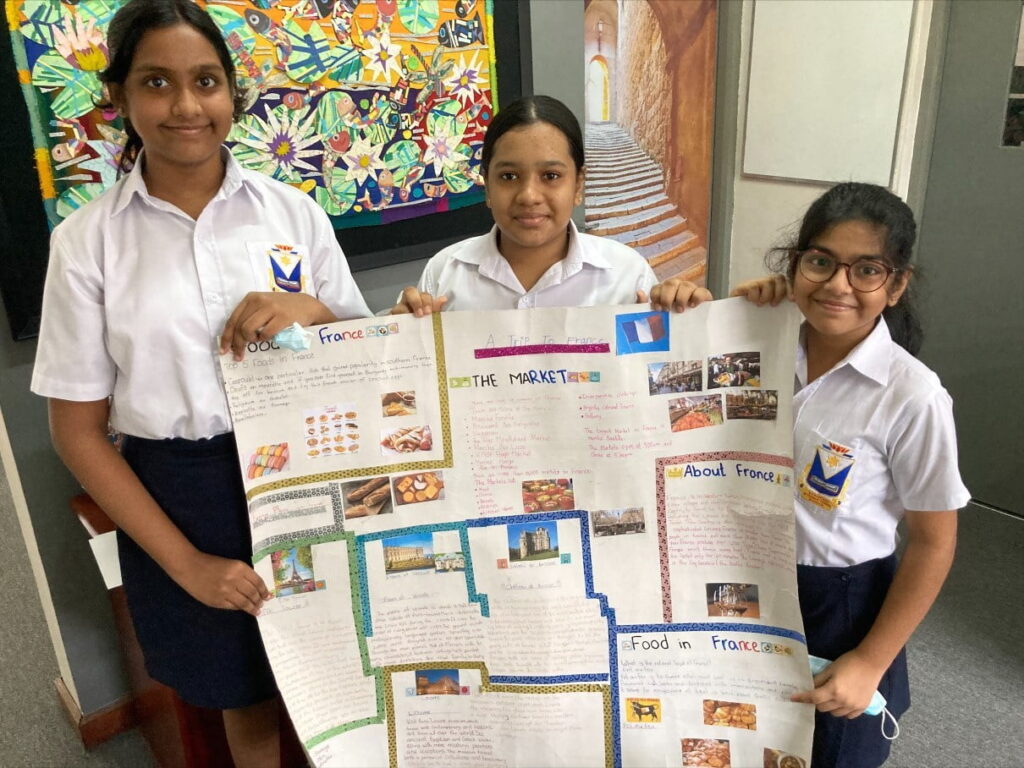Future Trends in International Education: What’s Next for International Schools in Colombo?
Introduction
International education is undergoing significant transformation worldwide, driven by technological advancements, shifts in global dynamics, and evolving educational philosophies. Colombo, as a growing hub for international education in Sri Lanka, is not immune to these changes. International schools in Colombo are increasingly focusing on future trends to stay competitive and provide students with a global, future-ready education. This blog explores the emerging trends in international education and what they mean for the future of Colombo’s international schools.
1. Integration of Technology in the Classroom
One of the most significant trends in international education is the integration of technology into the learning environment. The global pandemic accelerated the adoption of digital tools and online learning platforms, a shift that is likely to continue. In Colombo’s international schools, we can expect to see:
- Blended Learning Models:
Schools are likely to adopt a combination of in-person and online learning, offering students more flexibility and personalized learning experiences. Blended learning allows for a more individualized pace, where students can learn in a way that suits their needs and schedules. - AI-Powered Learning Tools:
Artificial Intelligence (AI) is being integrated into education systems to provide personalized feedback, adaptive learning experiences, and AI-driven tutoring systems. These tools can help identify students’ strengths and weaknesses, providing customized learning paths that enhance their academic performance. - Virtual and Augmented Reality (VR/AR):
VR and AR technologies are making their way into classrooms, offering immersive learning experiences. For example, students can take virtual field trips to historical sites or explore complex scientific concepts in a 3D environment, making learning more engaging and interactive.

2. Emphasis on Global Citizenship and Cross-Cultural Competence
As the world becomes more interconnected, there is a growing emphasis on fostering global citizenship and cross-cultural competence among students. International schools in Colombo are increasingly focused on:
- International Curriculum and Exchange Programs:
Schools are adopting curricula like the International Baccalaureate (IB) that emphasize global awareness, critical thinking, and intercultural understanding. Exchange programs and collaborations with schools in other countries are also becoming more common, offering students the opportunity to experience different cultures firsthand. - Multilingual Education:
With the rise of globalization, being multilingual is an asset. Colombo’s international schools are likely to expand their language offerings, emphasizing not just English but also other global languages like Mandarin, French, and Spanish. This trend aligns with the need for students to communicate effectively in a global context. - Service Learning and Community Engagement:
Schools are integrating service-learning projects into their curricula, encouraging students to engage with local communities and understand global issues at a grassroots level. This hands-on approach helps students develop a sense of responsibility and empathy, essential traits for future global leaders.
3. Personalized and Student-Centered Learning
The traditional one-size-fits-all approach to education is being replaced by personalized, student-centered learning models. In Colombo’s international schools, this shift is evident in:
- Individualized Learning Plans (ILPs):
Schools are increasingly developing ILPs that cater to each student’s strengths, interests, and learning pace. These plans are designed to maximize student engagement and achievement by focusing on their unique needs. - Project-Based Learning (PBL):
PBL is becoming a cornerstone of modern education, where students learn by working on real-world projects that require critical thinking, collaboration, and problem-solving. This approach not only makes learning more relevant but also prepares students for the complexities of the modern world. - Flexible Learning Environments:
The physical layout of classrooms is evolving to support more collaborative and flexible learning. Gone are the days of rows of desks facing a blackboard. Instead, we see learning spaces designed to foster creativity, communication, and teamwork, with modular furniture and access to technology.

4. Sustainability and Environmental Education
As global environmental concerns continue to rise, sustainability is becoming a central theme in education. Colombo’s international schools are expected to:
- Incorporate Environmental Education into the Curriculum:
Schools are integrating topics like climate change, renewable energy, and conservation into their curricula. This education is aimed at raising awareness among students and empowering them to take action for a sustainable future. - Green School Initiatives:
Many international schools are adopting green practices, such as reducing waste, conserving energy, and encouraging students to participate in eco-friendly projects. Schools may also incorporate sustainability into their operations, from building eco-friendly campuses to promoting sustainable transportation options. - Student-Led Environmental Projects:
Encouraging students to lead initiatives, such as planting trees, recycling programs, or clean-up drives, helps them develop leadership skills while contributing to their communities. These projects often tie into larger global movements, giving students a sense of connection to global sustainability efforts.
5. Mental Health and Wellbeing
The importance of mental health and wellbeing in education is gaining recognition globally, and Colombo’s international schools are no exception. Future trends include:
- Holistic Approaches to Education:
Schools are increasingly adopting holistic education models that focus on the overall development of the child—academically, emotionally, and socially. This includes integrating mindfulness practices, emotional intelligence training, and social-emotional learning (SEL) into the curriculum. - Counseling and Support Services:
With the growing awareness of mental health issues, schools are expanding their counseling services to support students’ emotional and psychological wellbeing. This includes providing access to professional counselors, peer support groups, and mental health workshops. - Wellness Programs:
Schools are incorporating wellness programs that promote physical health, such as yoga, meditation, and sports, alongside mental health initiatives. These programs are designed to help students manage stress, build resilience, and maintain a healthy work-life balance.

Conclusion
The future of international education in Colombo is bright, with schools embracing innovative trends that prepare students for the challenges and opportunities of the 21st century. By integrating technology, fostering global citizenship, personalizing learning, promoting sustainability, and prioritizing mental health, Colombo’s international schools are positioning themselves as leaders in global education. These trends not only enhance the educational experience but also ensure that students are well-equipped to thrive in an increasingly interconnected and complex world.
What is blended learning, and how does it benefit students?
Blended learning combines in-person and online education, offering flexibility and personalized learning experiences. It allows students to learn at their own pace and access a wide range of resources.
Why is global citizenship important in education?
Global citizenship fosters an understanding of global issues, promotes cultural awareness, and prepares students to contribute positively to the global community. It is essential for navigating the interconnected world of today.
What role does sustainability play in modern education?
Sustainability education raises awareness of environmental issues and encourages students to adopt eco-friendly practices. It is crucial for preparing students to tackle global challenges related to climate change and conservation.
What is project-based learning, and why is it effective?
Project-based learning involves students working on real-world projects that require critical thinking, collaboration, and problem-solving. It makes learning more relevant and helps students develop practical skills.
What are green school initiatives?
Green school initiatives involve adopting eco-friendly practices in school operations and promoting environmental education. They aim to create sustainable campuses and foster a culture of environmental responsibility among students.
What is the significance of a multilingual education?
Multilingual education equips students with language skills that are valuable in a globalized world. It enhances communication abilities and opens up opportunities for international careers.
How is technology changing the classroom environment?
Technology is revolutionizing education through tools like AI-powered learning platforms, VR/AR experiences, and online resources. These innovations make learning more engaging, accessible, and tailored to individual needs.
How are schools addressing mental health and wellbeing?
Schools are integrating mental health support into their curricula, offering counseling services, and promoting wellness programs. These initiatives help students manage stress and maintain emotional and psychological health.
How are Colombo’s international schools adapting to future trends?
Colombo’s international schools are embracing trends like technology integration, global citizenship, personalized learning, and sustainability to provide a future-ready education.

